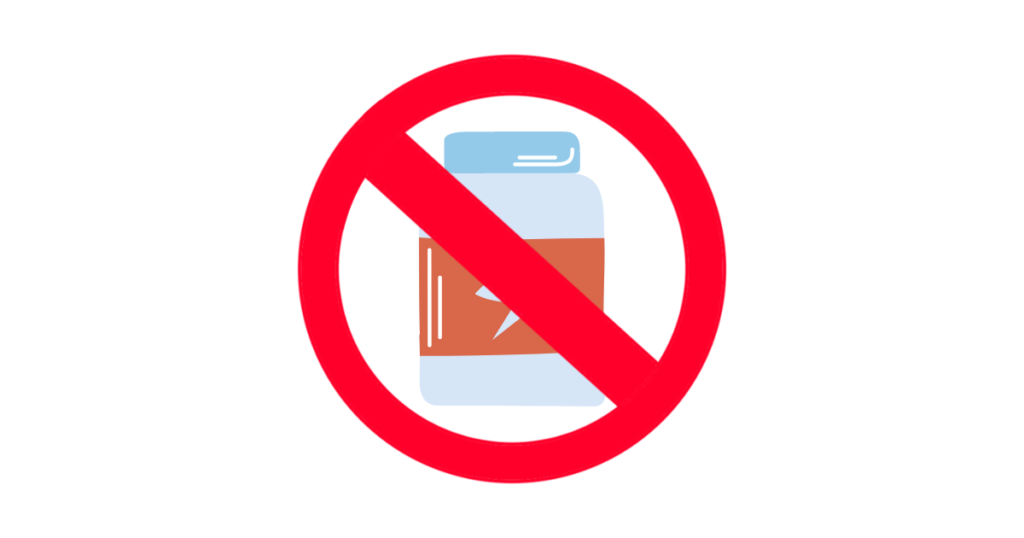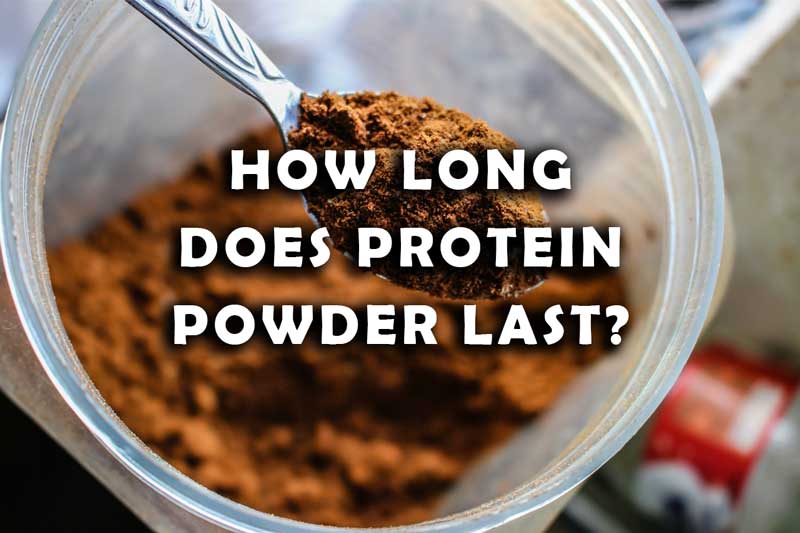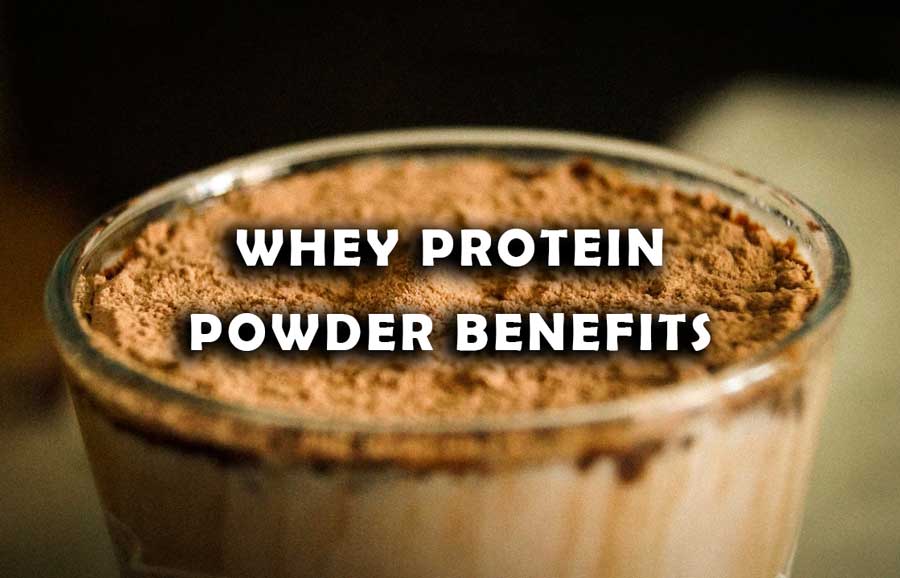Protein powder, just like any other supplement or packaged food has an expiry date. Anything that is a part of a diet contains an expiry date. Protein powder is a popular supplement among fitness enthusiasts and athletes. It’s an easy and convenient way to boost your protein intake and aid muscle recovery after a workout. However, many people are unsure and might wanna know ‘does protein powder expire? and if you can take it after its expiry date.
In short, yes just like anything else, protein powder does expire. But protein powder can last upto 2 years, if stored properly.
In this article, we’ll discuss everything you need to know about protein powder shelf life, storage, and signs of spoilage.
What is protein powder?
Protein powder is a dietary supplement that comes in various forms, including whey, casein, soy, pea, hemp, and rice protein.
It’s made by extracting protein from food sources and processing it into a powdered form. Protein powder is a convenient way to boost your protein intake, especially for people who don’t get enough protein from their diet.
It’s commonly used by athletes and bodybuilders to support muscle growth and recovery after exercise.
Does protein powder expire?

Yes, protein powder does expire, but it can have a long shelf life if stored properly. The expiration date is usually present on the packaging, and it’s better to consume the protein powder before this date.
However, the expiration date is not a guarantee of the protein powder’s quality or safety. Protein powder can still be safe to consume after the expiration date if stored properly and shows no signs of spoilage.
How long does protein powder last?
The shelf life of protein powder depends on various factors, including the type of protein, packaging, storage conditions, and exposure to moisture and heat.
In general, unopened protein powder can last for up to two years (24 months) from the manufacturing date if stored properly.
With proper handling and storage, you can easily prevent protein powder to expire fast.
However, once you open the protein powder, it can start to degrade and lose its quality over time.
What affects protein powder shelf life?
fThe following factors can affect the shelf life of protein powder:
- Type of protein: Different types of protein have different shelf lives. Whey protein, for example, has a shorter shelf life than casein protein.
- Packaging: One should store protein powder in airtight containers to prevent exposure to moisture and air, which can cause it to clump and spoil.
- Storage conditions: One should store protein powder in a cool, dry place away from sunlight, heat, and humidity. Exposure to heat and moisture can accelerate protein powder degradation and spoilage.
- Exposure to air: Once you open the protein powder, it can start to oxidize and degrade due to exposure to air. It’s best to use airtight containers and consume the protein powder within a few months of opening it.
- Contamination: Protein powder can also get spoil fast if bacteria or other microorganisms contaminate it, which can cause spoilage and foodborne illness.
How to store protein powder?
To maximize the shelf life of protein powder, it’s important to store it properly. Here are some tips for storing protein powder:
- Store protein powder in a cool, dry place away from sunlight, heat, and humidity.
- Keep protein powder in its original packaging or transfer it to an airtight container.
- Avoid storing protein powder in the refrigerator or freezer, as moisture can cause it to clump and spoil.
- Use a clean, dry scoop to measure out the protein powder, and avoid touching it with your bare hands to prevent contamination.
Signs of spoiled protein powder

Consuming spoiled protein powder can cause food poisoning and other health problems. Here are some signs that your protein powder may have gone bad:
- Off smell: Spoiled protein powder may have a rancid or sour smell.
- Discoloration: Protein powder may change color or develop brown spots when it’s spoiled.
- Clumping: Protein powder may clump or become hard when it reacts with moisture.
- Mould or bacteria growth: Protein powder may develop mould or bacterial growth if it’s contaminated.
- Expiration date: If the protein powder is past its expiration date, it may not be safe to consume.
Can you use expired protein powder?
While it’s generally better to consume protein powder before the expiration date, it may still be safe to use after the expiration date if stored properly and shows no signs of spoilage.
You should do your own testing to know if the protein powder is going to expire or is already there.
The taste will change, the colour might change or it might smell off. If you find any such things from your protein powder, reject it immediately and throw it away.
However, the protein powder may have lost some of its quality and nutritional value over time. It’s always best to check for signs of spoilage before using expired protein powder.
Types of protein powder and their shelf life
Different types of protein powder have different shelf lives. Here’s a summary of the shelf life of common types of protein powder:
1) Whey protein
Unopened whey protein powder can last for up to two years, while opened whey protein can last for up to six months if stored properly.
2) Casein protein
Unopened casein protein can last for up to two years, while opened casein protein can last for up to six months if stored properly.
3) Soy protein
As it is free of dairy, upopened soy protein can last for up to 2.5 years. And opened soy protein can last for up to six months if stored properly.
4) Pea protein
Unlike whey protein powder, pea protein are free of dairy and lactose. So, unopened pea protein can last for up to 2-3 years, while opened pea protein can last for up to six months if stored properly.
5) Hemp protein
Same goes for hemp. Unopened hemp protein can last for up to 2.5 years, while opened hemp protein can last for up to six months if stored properly.
6) Rice protein
Unopened rice protein can last for up to 2.5 years, while opened rice protein can last for up to six months if stored properly.
Harms of Using Expired Protein Powder

Consuming expired protein powder can have harmful effects on your health. Although some expired protein powder may not show any visible signs of spoilage, it can still have negative effects on your body. Here are some of the potential harms of consuming expired protein powder:
1) Loss of nutritional value
Protein powder contains essential amino acids that are important for muscle growth and repair. However, as protein powder ages, it can lose some of its nutritional value, making it less effective at aiding in muscle growth and recovery.
2) Spoilage
Expired protein powder can spoil, which can cause digestive issues such as nausea, vomiting, and diarrhea. Spoiled protein powder can also contain harmful bacteria or moulds that can cause foodborne illnesses.
3) Harmful chemicals
Expired protein powder may contain harmful chemicals such as free radicals, which can damage cells and increase the risk of cancer and other diseases.
4) Allergic reactions
Expired protein powder can also trigger allergic reactions in some people, especially those with food allergies or sensitivities. These reactions can include hives, itching, throat swelling, and difficulty breathing.
5) Reduced effectiveness
Expired protein powder may not be as effective at aiding in muscle growth and recovery as fresh protein powder. This is because the essential amino acids in protein powder degrade over time, reducing their effectiveness.
Conclusion
Protein powder can be a benefitial and convenient way to boost your protein intake and support muscle recovery after a workout.
However, it’s important to understand how long protein powder lasts. Also to know, how to store it properly to prevent spoilage and foodborne illness. Always check the expiration date, store protein powder in a cool, dry place away from moisture and heat. Furthermore, look for signs of spoilage before consuming it.
FAQs
1) How long does unopened protein powder last?
Unopened protein powder can last for up to two years if stored properly. Different protein powders have different shelf life. Always check their expiry and try to consume it within the mentioned date.
2) Can protein powder go bad?
Yes, protein powder can go bad if it comes in contact with moisture, heat, or air, or if it has come in contact with bacteria or other microorganisms. These can contaminate it.
3) How should I store protein powder?
You should store protein powder in a cool, dry place away from moisture and heat, and kept in an airtight container to prevent contamination.
4) Can I use expired protein powder?
Expired protein powder may still be safe to consume if it shows no signs of spoilage, but it may have lost some of its quality and nutritional value over time.
5) How can I tell if my protein powder is spoiled?
You can tell if your protein powder is spoiled by checking for signs such as a rancid or sour smell, discoloration, clumping, mould or bacteria growth, or an off taste.





